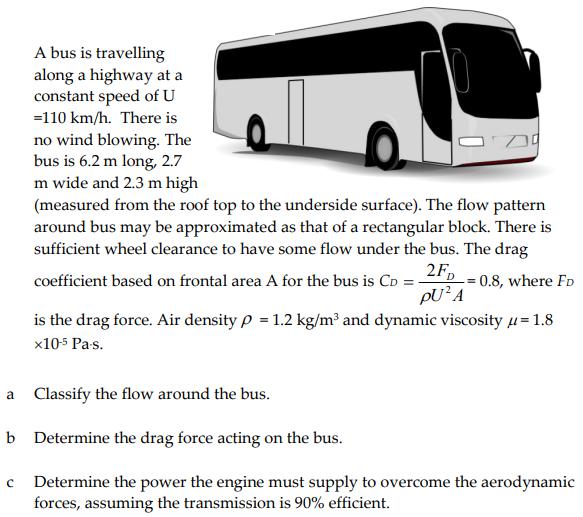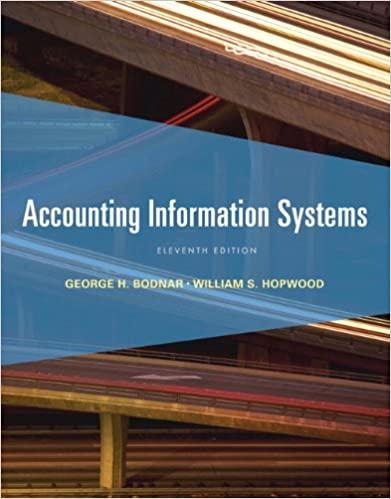Question
. A bus is travelling along a highway at a constant speed of U =110 km/h. There is no wind blowing. The bus is 6.2
 .
. A bus is travelling along a highway at a constant speed of U =110 km/h. There is no wind blowing. The bus is 6.2 m long, 2.7 m wide and 2.3 m high (measured from the roof top to the underside surface). The flow pattern around bus may be approximated as that of a rectangular block. There is sufficient wheel clearance to have some flow under the bus. The drag coefficient based on frontal area A for the bus is CD = - 2FD PU A = 0.8, where FD is the drag force. Air density p = 1.2 kg/m and dynamic viscosity = 1.8 x10-5 Pa.s. a Classify the flow around the bus. b Determine the drag force acting on the bus. c Determine the power the engine must supply to overcome the aerodynamic forces, assuming the transmission is 90% efficient.
Step by Step Solution
3.51 Rating (154 Votes )
There are 3 Steps involved in it
Step: 1

Get Instant Access to Expert-Tailored Solutions
See step-by-step solutions with expert insights and AI powered tools for academic success
Step: 2

Step: 3

Ace Your Homework with AI
Get the answers you need in no time with our AI-driven, step-by-step assistance
Get StartedRecommended Textbook for
Accounting Information Systems
Authors: George H. Bodnar, William S. Hopwood
11th Edition
0132871939, 978-0132871938
Students also viewed these General Management questions
Question
Answered: 1 week ago
Question
Answered: 1 week ago
Question
Answered: 1 week ago
Question
Answered: 1 week ago
Question
Answered: 1 week ago
Question
Answered: 1 week ago
Question
Answered: 1 week ago
Question
Answered: 1 week ago
Question
Answered: 1 week ago
Question
Answered: 1 week ago
Question
Answered: 1 week ago
Question
Answered: 1 week ago
Question
Answered: 1 week ago
Question
Answered: 1 week ago
Question
Answered: 1 week ago
Question
Answered: 1 week ago
Question
Answered: 1 week ago
Question
Answered: 1 week ago
Question
Answered: 1 week ago
Question
Answered: 1 week ago
Question
Answered: 1 week ago
Question
Answered: 1 week ago
View Answer in SolutionInn App



